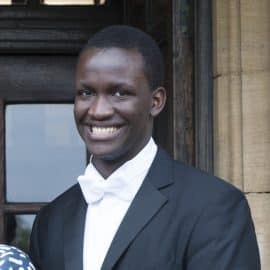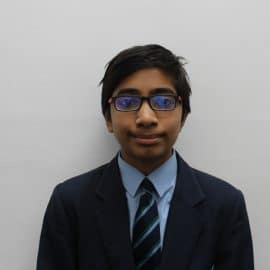History
History is a subject which informs and challenges, delighting those who engage with it whilst also endowing them with multiple skills.
History is a study of the people and of the world around us; human beings may have been born in different contexts and different eras, but they had the same hopes, dreams and fears as men and women alive today. In our complex 21st-century world, recognising continuity can help us see towards the future and better understand ourselves.
History develops critical thinking and writing skills, training boys to form and defend their own viewpoints and broaden their intellectual horizons. Not only are such skills and attributes sought by top universities and employers, they are also crucial for dealing with the world around us – for sifting information to distinguish between opinion and fact and to identify ‘fake news’. History thus encourages pupils to become lifelong learners and equips them for a huge variety of careers, such as law, journalism and media – in fact, for anything that requires intelligent, analytical and flexible thinkers.
Learning about the depths to which humanity has sunk can be difficult, just as discovering the great feats mankind has accomplished can lift hope for the future. By teaching pupils about both, we help them understand what it is to be citizens of the world and encourage them to see beyond themselves. The study of history contributes to the development of informed, tolerant and respectful young adults who understand the root of people’s differences and the contextual nature of the current world, and who are able to see things from diverse perspectives.
The History department encourages full participation by pupils in lessons, whether in debates, class discussion, group work or role plays. The focus of class and homework ranges from short-answer responses to essay-writing, with a strong emphasis on handling source material. We teach pupils how to work independently and then to present the results of their study to others.
Boys learn to critique information by looking at numerous perspectives and sources. We encourage the use of technology to aid study and research; online journals and texts are frequently utilised. However, the department also believes in the value of books and has an extensive collection.
Academic support is provided through our History Clinic for boys with particular class work or homework issues, through lunchtime revision sessions for GCSE and A-Level students, and through a dedicated programme for sixth-formers wishing to study History at university.
Ample extra-curricular opportunities are offered. Our History Club for Lower School boys has a varied programme, from model-making to historical films, and there are Upper School and Middle School History societies that organise talks by members of staff and outside speakers. The department itself invites in guest speakers, such as Holocaust survivors, and organises visits, including a Year 8 visit to Hampton Court, and conferences for A-level historians.
Head of History: Helen Edmunds
Having read History at Bristol University, Mrs Edmunds previously worked at St Olave’s Grammar School in Orpington, Kent, before joining QE in 2009. Her main academic specialism is in Russian history, while she is interested more generally in military and political history.
“I love how history allows you a greater understanding of human nature and encourages a greater sense of empathy and responsibility to others. It gives you a sense of the world around you, and your place within it.”
She enjoys observing the boys’ appetite for learning about new places and time periods and relishes “seeing how this makes them re-evaluate their thoughts and previous ideas”.
Mrs Edmunds values the history of the School and the experience of teaching in a building that reflects part of this history.
The History department is heavily involved in teacher-training, with numerous trainees making their way through it. Mrs Edmunds is also involved with the Prince’s Teaching Institute, working as its History stream designer and consultant.

Old Elizabethans: From child refugee to top lawyer
From a childhood which saw him arrive in London as a refugee from Rwanda with his mother, Claude Muhuza (OE 2001-2008) has gone on to success at QE, at Cambridge and as a lawyer with one of the world’s largest firms.
Claude’s achievements at School included leading an all-conquering European Youth Parliament team that ended up representing the UK. In Year 13, he received the coveted Chairman of Governors’ prize. His A grades in A-level History, English Literature, Economics and French secured his place to read Law at Pembroke College, where he was elected President of the Student Union and won the Crowden Award for his contribution to the life of the college.
After taking his Legal Practice Course, he joined Baker & McKenzie and is now an Associate, advising on general commercial litigation and international arbitration. In 2017, Claude completed his Master of Laws (LLM) at the University of Pennsylvania Law School.

Upper School pupil: the importance of context
What Alex Beard most appreciates about studying History is the insights it gives him into why – especially in difficult circumstances – people behave in the way they do. “Human nature is a constant, so by understanding the historical context of an event, we can relate it to our own lives.” He has always enjoyed the subject and has been Co-President of the Upper School History Society.
He is also passionate about modern languages and has been offered a place at Oxford to read History & German. “If you take the period of World War II for example, History gives me a context for the German literature, which is crucial in appreciating it.”
Alex says that his History teacher, Mr [Simon] Walker, gave him a great deal of advice through the university application process. “We discussed sources, which helped me to develop my analytical thinking and to articulate my thoughts.”

Lower School pupil: gaining in confidence
Akhil Potteti enjoys stories and learning about events – the successes and failures of people of a bygone age. “I am curious; I want to know why and how things happen.” For Akhil, History enables him to “join the dots”. His self-confidence has also increased. “I was terrible at writing and communicating my ideas freely. The History teachers have really helped me, and I am now much better at inferring and relating my ideas.”
Akhil is a member of the coding club and the cricket society, and he enjoys lane swimming. He has History in mind as a possible A-level subject, although he adds: “I very much admire the work that doctors do and, at the moment, my aspiration is to become one.”

Old Elizabethans: Living life to the full
Just as he did at QE, Adam Hilsenrath has thrown himself into life at Oxford. A former School Captain, Adam (OE 2008-2015) won School prizes for History, Economics and public speaking; he gained an A* for his Extended Project Qualification project on the impact of Emperor Constantine on Christianity; was involved in debating; played the piano, and was a rugby player at QE.
As an undergraduate reading History at Lady Margaret Hall, Oxford, he has held officer roles with his Junior Common Room, the university’s Liberal Democrats and the Student Union, as well as taking part in student journalism and football. He has led the Jewish societies of both QE and Oxford.
Adam, who describes himself as a “future educator”, took an internship with Teach First (an organisation recruiting high-flyers as teachers to tackle educational disadvantage) and has kept in touch with his alma mater, returning to QE’s History department as an observer.

